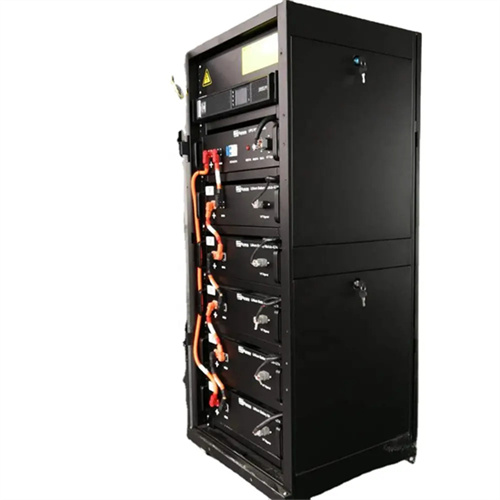Analysis of the advantages and disadvantages of energy storage lithium batteries

Brief introduction on what gravity energy storage is
Compared to lithium batteries and pumped storage, gravity energy storage technology is easier to expand and modular, and it will not produce harmful substances, or rely on compressed air and flywheels to pose

Applications of Lithium-Ion Batteries in Grid-Scale Energy Storage
In the electrical energy transformation process, the grid-level energy storage system plays an essential role in balancing power generation and utilization. Batteries have

A Review of Thermal Management and Heat Transfer
With the increasing demand for renewable energy worldwide, lithium-ion batteries are a major candidate for the energy shift due to their superior capabilities. However, the heat generated by these batteries during

Sodium-ion batteries: the revolution in renewable energy storage
Discover the advantages and disadvantages of sodium-ion batteries compared to other renewable energy storage technologies, their application in the energy industry and the future of cleaner

Applications of Lithium-Ion Batteries in Grid-Scale
Among several battery technologies, lithium-ion batteries (LIBs) exhibit high energy efficiency, long cycle life, and relatively high energy density. In this perspective, the properties of LIBs, including their operation mechanism,

Sodium-ion Batteries: Inexpensive and Sustainable Energy Storage
Sodium-ion batteries are an emerging battery technology with promising cost, safety, sustainability and performance advantages over current commercialised lithium-ion batteries.

Battery Technologies for Grid-Level Large-Scale
Grid-level large-scale electrical energy storage (GLEES) is an essential approach for balancing the supply–demand of electricity generation, distribution, and usage. Compared with conventional energy storage methods,

The requirements and constraints of storage technology in
This scenario comes from high energy density of Lithium-ion batteries associated with a significant round-trip efficiency and decreasing levelized cost of storage. In both types

Lithium‐based batteries, history, current status,
The lithium titanium oxide (Spinel) Li 4 Ti 5 O 12 (LTO) has advantageous properties suitable for lithium storage, despite having the theoretically low capacity of around 175 mA h g −1. 150 These properties

Comparing Battery Chemistries: Pros And Cons
"Lithium-ion batteries have revolutionized portable electronics and electric vehicles due to their high energy density, long cycle life, and lightweight design." – Dr. Jeff Dahn, Battery Expert Now that we''ve explored

Battery technologies: exploring different types of batteries for energy
This comprehensive article examines and compares various types of batteries used for energy storage, such as lithium-ion batteries, lead-acid batteries, flow batteries, and

6 FAQs about [Analysis of the advantages and disadvantages of energy storage lithium batteries]
What are the advantages of lithium ion batteries?
Due to the advantages of lithium-ion batteries, include high energy density, low self-discharge rate, wide operating temperature, and strong charge retention ability , , , , . New energy vehicles with lithium-ion cells as the primary energy source have gradually begun to occupy the mainstream of the automotive market , , .
Are lithium-ion batteries energy efficient?
Among several battery technologies, lithium-ion batteries (LIBs) exhibit high energy efficiency, long cycle life, and relatively high energy density. In this perspective, the properties of LIBs, including their operation mechanism, battery design and construction, and advantages and disadvantages, have been analyzed in detail.
Why are lithium batteries important for energy storage?
Among the various battery types, lithium batteries are playing an increasingly important role in electrical energy storage because of their high specific energy (energy per unit weight) and energy density (energy per unit volume).
What are the disadvantages of using Li-ion batteries for energy storage?
However, the disadvantages of using li-ion batteries for energy storage are multiple and quite well documented. The performance of li-ion cells degrades over time, limiting their storage capability.
How much energy can a Li-ion battery store?
Utilities around the world have ramped up their storage capabilities using li-ion supersized batteries, huge packs which can store anywhere between 100 to 800 megawatts (MW) of energy. California based Moss Landing's energy storage facility is reportedly the world’s largest, with a total capacity of 750 MW/3 000 MWh.
Why are lithium ion batteries so expensive?
1. Decreasing cost further: Cost plays a significant role in the application of LIBs to grid-level energy storage systems. However, the use of LIBs in stationary applications is costly because of the potential resource limitations of lithium.
Related Contents
- Analysis of the advantages of photovoltaic power generation and energy storage
- Advantages and disadvantages of photovoltaic energy storage lighting
- What is the proportion of energy storage lithium batteries
- How many groups of 1g energy storage lithium batteries are there
- How to buy energy storage lithium batteries
- Fire safety regulations for lithium batteries for energy storage
- Which company is the best for producing energy storage lithium batteries
- Do energy storage lithium batteries have radiation Zhihu
- Lithium batteries are prohibited for energy storage batteries
- Lithium batteries in energy storage
- The principle of using waste lithium batteries for energy storage
- The principle of eliminating lithium batteries from energy storage batteries